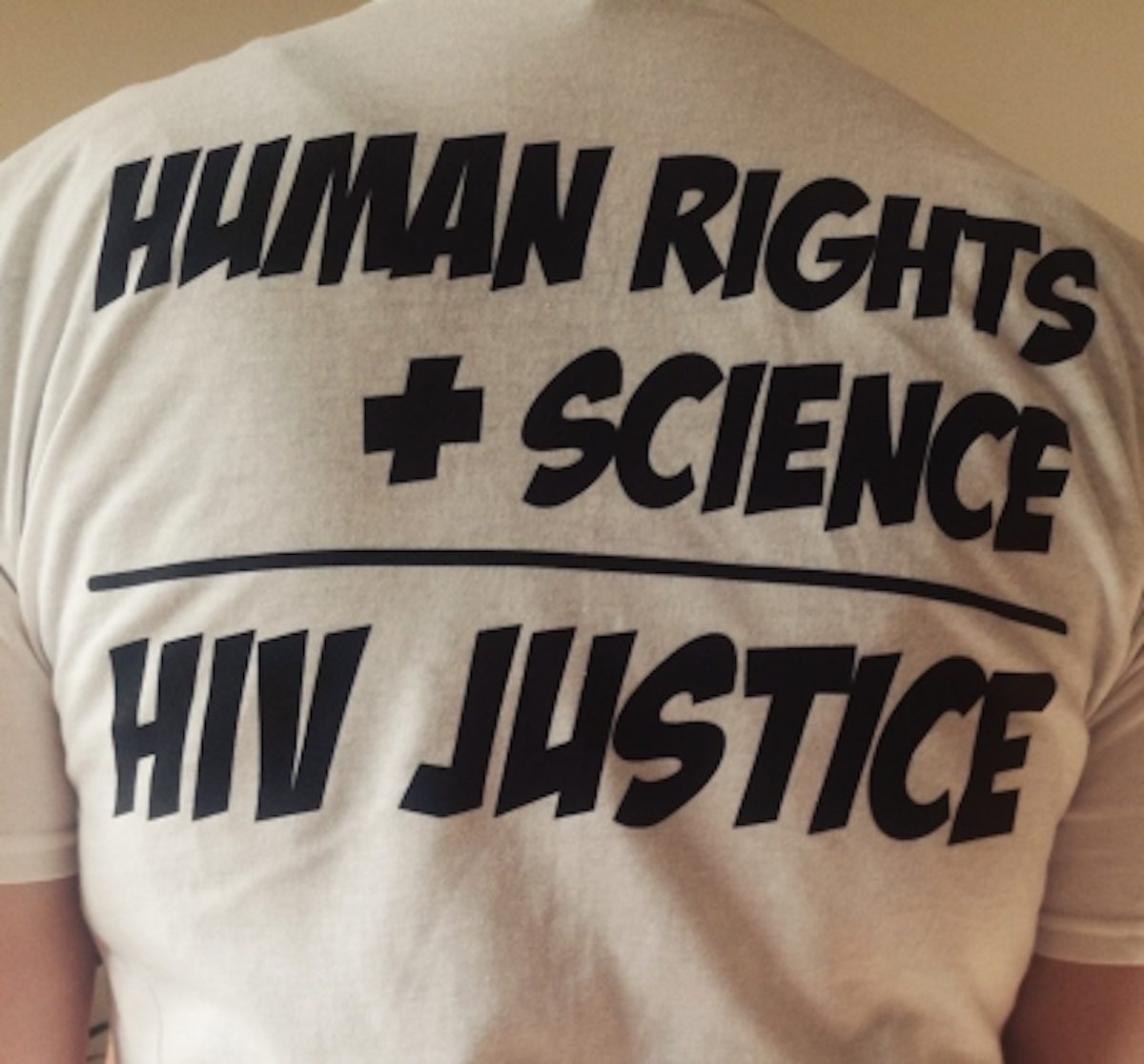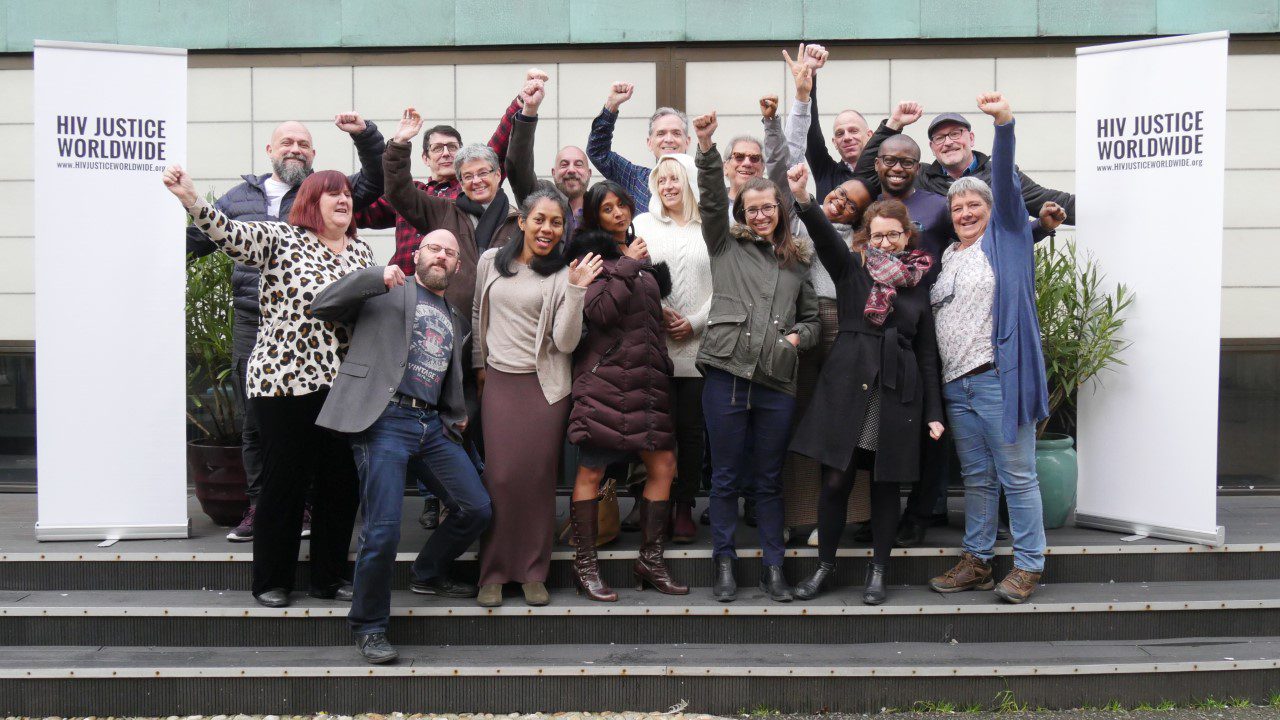HIV Justice Global Consortium
The HIV Justice Global Consortium is a global consortium of networks aiming to end HIV criminalization, i.e., the unjust use of criminal or similar laws to control and punish people living with HIV based solely on their HIV-positive status.
| Grantee type: Global Consortium |
| Grant: $2,160,000 |
| Grant period: 2019-2021 |
| Lead organization: HIV Justice Network (HJN) |
Partner organizations:
|
The Consortium is comprised of seven networks and organizations: the AIDS and Rights Alliance for Southern Africa (ARASA), the Canadian HIV/AIDS Legal Network (CHALN), The Global Network of People Living with HIV (GNP+), HIV Justice Network (HJN), Positive Women’s Network (PWN-USA), the Sero Project (Sero), and the Southern Africa Litigation Centre (SALC).
- As of December 2018, according to a 2019 HJN global audit of HIV-related laws, 75 countries had HIV-specific criminal laws, and 37 other countries had ever used their general criminal laws (e.g. assault, sexual assault) to prosecute people for alleged HIV non-disclosure, exposure or transmission, including in cases where no harm was intended; where HIV transmission did not occur, was not possible or was extremely unlikely; and where transmission was neither alleged nor proven.
- During 2016-2018, the HIV Justice Network identified more than 900 HIV criminalisation cases in 49 countries. Media about these cases worsened stigma against all people living HIV. HIV-specific criminal laws and criminalisation cases act in concert with other forms of discrimination against marginalised populations on the basis of gender, gender identity, sexuality, drug use, engaging in sex work, ethnicity, immigration status, and religion.
- HIV criminalisation appears to be increasing, with HIV-related prosecutions undertaken for the first time in 2018 in Chile, Ireland, Kazakhstan, Northern Ireland, Paraguay, Suriname and Tajikistan. New HIV criminalisation laws were enacted in 2018 in Nepal and proposed in Chile, China, Jamaica, and Mendoza (Argentina).
- Advocates have influenced some positive changes in countries such as Angola, Belarus, Canada, the DRC, Mexico and the United States. Further advocacy is needed in all regions of the world to end HIV criminalization and promote the human rights of people living with HIV, and thereby improve service accessibility and improve the effectiveness of HIV-related funding and programmes.

RCF funding 2019-2021
The HIV Justice Global Consortium received US$ 2.16 million in funding from the Robert Carr Fund during 2019-2021, building on sustained RCF support for this work since 2016. This funding was allocated to both core and strategic program costs across all major regions of the world to help build network capacity and to support globally aligned action.
Geographic coverage
The HIV Justice Global Consortium is a global consortium, convening and supporting organizations and individuals in all regions of the world, including regional coalition organizing in Eastern and Southern Africa, Francophone West and Central Africa, Eastern Europe and Central Asia, and Latin America.
Population coverage
The HIV Justice Global Consortium serves and represents people living with HIV and other inadequately served populations (ISPs) threatened by HIV-specific criminal laws and related prosecution and discrimination.
Activities 2019-2021
With RCF funding in 2019-2021, advocates will strengthen their national, regional and global organizing, advocate for human rights and legal protections, and develop global and regional advocacy tools and campaigns. For example:
- Monitor cases, laws and other legal and policy developments, including new case and law tracking maps and tools on the redesigned HIV Justice Network website, incorporating the Global Criminalisation Scan, as well as a directory of organisations providing legal services to people living with HIV.
- Continue to develop and promote advocacy tools, curated in the HIV Justice Toolkit, available in English, French, Russian and Spanish, including the “Expert consensus statement on the science of HIV in the context of criminal law”, “Advancing HIV Justice” reports and the HIV Justice Media Toolkit, all providing information and guidance for advocacy at a country level.
- Organize advocacy conferences and skills building workshops in all regions of the world with the goal of ending HIV criminalization in countries of Eastern Europe and Central Asia, Francophone, Anglophone and Lusophone Africa, North America, Latin America and the Caribbean, and Asia.
- Provide legal defence and strategic litigation support wherever it is needed, including in sub-Saharan Africa, Eastern Europe and Central Asia, and Latin America and the Caribbean.

Intended results 2019-2021
The intended results from this work during 2019-2021 will include:
- Network strength and influence: Support for people living with HIV and human rights advocates in countries of Eastern Europe and Central Asia, Francophone, Anglophone and Lusophone Africa, North America, Latin America and the Caribbean, and Asia to launch and sustain advocacy to end HIV criminalization.
- Human rights: Legal defence and strategic litigation support wherever it is needed, including in sub-Saharan Africa, Eastern Europe and Central Asia, and Latin America and the Caribbean.